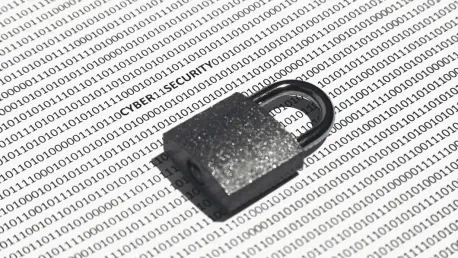In a digital age where personal information is as valuable as currency, the news of a data breach at Brown Integrated Logistics Inc. has raised significant concerns among consumers who entrusted their sensitive details to the company, sparking widespread alarm. Late last year, an unauthorized party reportedly accessed the company’s computer network, potentially exposing critical data such as names, addresses, Social Security numbers, and financial account details. As a result, a class action lawsuit was filed, alleging that the logistics firm failed to adequately safeguard this information. Now, with a $150,000 settlement on the table, affected individuals might be eligible to claim compensation of up to $4,000 for losses incurred due to the breach. This development not only highlights the growing risks of data vulnerabilities but also underscores the importance of understanding one’s rights in such scenarios. Read on to explore the specifics of this settlement and how it might apply to those impacted by the incident.
1. Understanding the Data Breach Incident
The incident at Brown Integrated Logistics Inc. unfolded in November 2023, when an unauthorized entity gained access to the company’s systems over a span of just a few days. According to the class action lawsuit, the breach compromised a wide array of personal information, including dates of birth, taxpayer identification numbers, medical records, and health insurance details. This unauthorized access left countless individuals vulnerable to identity theft and fraud, sparking outrage and legal action against the company for allegedly inadequate security measures. While the firm has denied any wrongdoing, the severity of the breach prompted a swift response in the form of notifications sent to affected consumers. These notifications, dispatched around September 23, 2024, informed recipients of the potential compromise and their eligibility to participate in the resulting settlement. This case serves as a stark reminder of the critical need for robust cybersecurity protocols in industries handling sensitive personal data.
Following the breach, the legal ramifications quickly escalated as affected individuals banded together to hold Brown Integrated Logistics accountable through a class action lawsuit. The suit claimed that the company’s failure to implement sufficient protective measures directly led to the exposure of highly confidential information, putting thousands at risk of financial and personal harm. As part of the resolution, the company agreed to a $150,000 settlement to compensate those impacted, without admitting fault. This settlement aims to address the damages suffered by class members, offering a range of reimbursement options for various losses and expenses. For those who received the official notification, this represents an opportunity to seek redress for the inconvenience and potential harm caused by the incident. Understanding the details of this breach and the subsequent legal action is essential for affected individuals to navigate the claims process and secure the compensation they may be entitled to under the settlement agreement.
2. Eligibility and Compensation Details
Determining eligibility for the Brown Integrated Logistics settlement is straightforward but requires specific criteria to be met. Only those who received a written notification via mail directly from the company on or about September 23, 2024, regarding the data breach that occurred between November 13 and November 15, 2023, qualify as class members. This notification included a unique class member ID, which is necessary for filing a claim. The settlement offers various forms of compensation depending on the nature of the loss or expense incurred. Class members can claim up to $750 for documented out-of-pocket costs, such as credit monitoring or identity theft insurance, and up to $100 for time spent addressing breach-related issues, calculated at $20 per hour for a maximum of five hours. Additionally, for more severe impacts, reimbursement for financial losses due to identity theft or fraud can reach up to $4,000, provided there is sufficient proof of unreimbursed monetary damage linked to the breach.
Beyond monetary compensation, the settlement provides other valuable benefits to help mitigate ongoing risks from the data exposure. Eligible individuals can opt for two years of free credit monitoring services through all three major credit bureaus—Experian, Equifax, and TransUnion. This service includes alerts, dark web scanning, identity theft insurance, and assistance in case of further issues, offering a layer of protection against future misuse of personal information. Alternatively, class members who prefer a simpler resolution may choose a flat cash payment of $75, though this option precludes claiming other benefits like credit monitoring or reimbursements. Each compensation category requires specific documentation or certification to validate claims, ensuring that payouts are directed to those genuinely affected. This structured approach to compensation reflects an effort to address the diverse impacts of the breach while providing practical solutions for safeguarding personal data moving forward.
3. How to File a Claim for Settlement Benefits
Filing a claim under the Brown Integrated Logistics settlement is a process designed to be accessible, though it demands attention to detail to meet the necessary requirements. Class members have the option to submit claims online through a designated portal or by downloading, completing, and mailing a PDF claim form to the settlement administrator at the provided address: Goins v. Brown Integrated Logistics Inc., c/o Kroll Settlement Administration LLC, P.O. Box 5324, New York, NY 10150-5324. All claims must be submitted by the deadline of November 4 of this year to be considered. Essential to the process is the inclusion of the class member ID found on the postcard settlement notice received by mail. Depending on the type of compensation sought, additional documentation may be required, such as receipts or bank statements for out-of-pocket costs, or detailed records proving financial losses due to identity theft or fraud directly tied to the breach.
For those seeking specific benefits, the claim process involves further steps to ensure eligibility and proper allocation of funds. To claim attested time spent resolving breach-related issues, a description of the activities performed must accompany the application. Similarly, opting for credit monitoring services requires selecting the appropriate option and certifying eligibility on the form. For financial losses up to $4,000, evidence of the loss, attempts to recover it, and confirmation that it isn’t covered by other reimbursements are necessary. Electronic transfers are available for online claims, while paper checks are an option for mailed submissions, and credit monitoring can be activated electronically as well. The settlement administrator will distribute payments only after the court grants final approval and resolves any appeals, meaning patience is required post-submission. Staying informed about key dates, such as the exclusion deadline of October 6 of this year, ensures that class members do not miss critical opportunities to participate in this resolution.
4. Key Deadlines and Future Considerations
Time is of the essence for those looking to benefit from the Brown Integrated Logistics settlement, as strict deadlines govern the process. The deadline to file a claim is set for November 4 of this year, providing a clear window for affected individuals to gather necessary documentation and submit their applications. Additionally, those who wish to exclude themselves from the settlement must do so by October 6 of this year, after which they forfeit the right to claim benefits but retain the ability to pursue separate legal action if desired. The final approval hearing date remains to be determined, but it will play a crucial role in confirming the distribution of funds from the $150,000 settlement pool, which also covers administration costs, attorneys’ fees up to $150,000, and a service award of up to $3,500 to the class representative. Keeping track of these dates is vital to ensure participation in the compensation process.
Looking ahead, the resolution of this case prompts reflection on the broader implications of data security in corporate environments. After the court finalizes the settlement and addresses any appeals, payments will be distributed to eligible class members who have navigated the claims process successfully. This incident underscores the urgent need for companies to prioritize robust cybersecurity measures to prevent similar breaches in the future. For affected individuals, taking advantage of offered benefits like credit monitoring becomes a practical step to safeguard against lingering risks of identity theft. Moreover, staying vigilant about personal data protection—such as regularly updating passwords and monitoring financial accounts—emerges as a critical habit in an era of increasing digital threats. As similar cases continue to surface, the lessons learned from this settlement encourage both consumers and corporations to advocate for stronger data protection frameworks to mitigate the fallout from such vulnerabilities.









